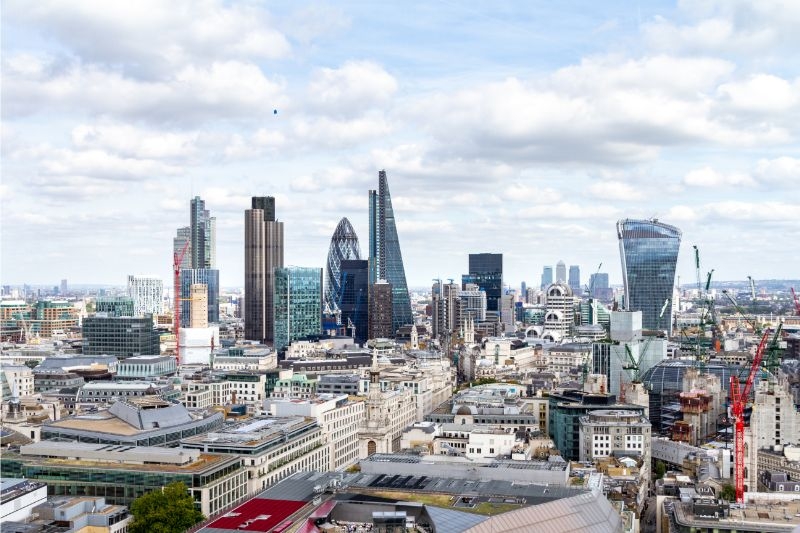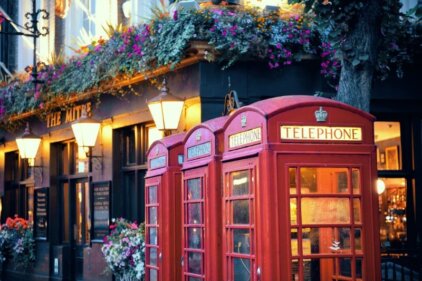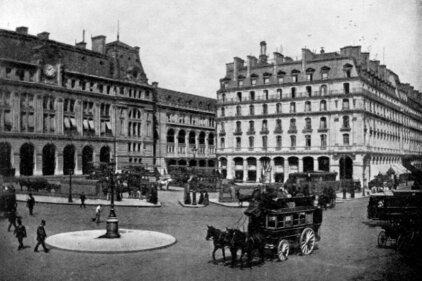The Historical Significance of London’s Oldest Businesses
These businesses are not merely commercial entities; they are repositories of cultural heritage, preserving the traditions and craftsmanship that have defined London’s identity for centuries. Many of these establishments have played a significant role in shaping the city’s social, political, and economic landscape, serving as gathering places, hubs of innovation, and symbols of community pride.
- Iconic Pubs and Taverns: London’s oldest pubs, some dating back to the 16th century, have been the beating heart of the city’s social life, hosting lively conversations, political debates, and cultural exchanges. These establishments have witnessed the rise and fall of empires, the birth of new ideas, and the evolution of the city’s diverse communities.
- Family-Owned Shops and Workshops: Family-owned businesses, passed down through generations, have preserved the artisanal skills and craftsmanship that have defined London’s reputation for quality and innovation. From bespoke tailors and leather goods makers to traditional bakeries and confectioners, these establishments have maintained their commitment to excellence, even in the face of modern competition.
- Renowned Institutions and Landmarks: London’s oldest businesses also include prestigious institutions, such as renowned universities, historic museums, and iconic landmarks. These establishments have not only shaped the city’s intellectual and cultural landscape but have also played a crucial role in preserving and sharing London’s rich heritage with the world.
Challenges Faced by London’s Oldest Businesses
Despite their historical significance and enduring appeal, London’s oldest businesses face a unique set of challenges in the modern era. The rapid pace of change, the rise of global corporations, and the shifting consumer preferences have all put immense pressure on these establishments, forcing them to adapt and evolve to remain relevant.
- Changing Consumer Habits: The advent of online shopping, fast-paced lifestyles, and the increasing demand for convenience have posed significant challenges for traditional businesses that have relied on a more personal, in-person experience.
- Rising Costs and Gentrification: The skyrocketing costs of rent, labour, and other operational expenses, coupled with the ongoing process of gentrification in many London neighbourhoods, have made it increasingly difficult for these businesses to maintain their presence and profitability.
- Generational Transitions: As the founders and owners of these businesses age, the challenge of passing the torch to the next generation has become a critical concern. Ensuring the smooth transition of ownership and the preservation of the business’s unique identity and traditions is a constant struggle.
Preserving the Legacy of London’s Oldest Businesses
In the face of these challenges, there is a growing movement to preserve the legacy of London’s oldest businesses. Individuals, community organizations, and local authorities have recognized the immense value these establishments bring to the city, and are taking active steps to ensure their survival and continued relevance.
- Legislative Protections: Some local authorities have implemented policies and regulations aimed at protecting the historic character and integrity of these businesses, such as designating them as heritage assets or providing tax incentives and other forms of financial assistance.
- Adaptive Reuse and Modernization: Many of London’s oldest businesses have embraced a combination of traditional practices and modern innovations, finding creative ways to adapt to the changing market while preserving their unique identities. This might involve incorporating digital technologies, diversifying their product offerings, or repurposing historic spaces to meet the needs of contemporary consumers.
- Community Engagement and Advocacy: Grassroots initiatives, led by passionate individuals and community groups, have played a crucial role in raising awareness and garnering support for the preservation of London’s oldest businesses. These efforts have included organizing events, launching marketing campaigns, and advocating for policy changes that prioritize the protection of these historic establishments.
Promoting and Supporting London’s Oldest Businesses
As the importance of preserving London’s historic businesses becomes increasingly recognized, various initiatives have emerged to support and promote these establishments, ensuring their continued success and longevity.
- Targeted Marketing and Branding: Many of London’s oldest businesses have partnered with local tourism boards, marketing agencies, and digital platforms to enhance their visibility and appeal to both local residents and visitors. This has involved the creation of engaging content, the development of cohesive branding strategies, and the leveraging of digital channels to reach a wider audience.
- Educational Initiatives and Apprenticeship Programs: To safeguard the unique skills and craftsmanship associated with these businesses, some have established apprenticeship programs and educational initiatives to train the next generation of artisans and entrepreneurs. This not only ensures the continuity of these traditions but also fosters a deeper appreciation for the city’s rich heritage.
- Collaborative Efforts and Networking: London’s oldest businesses have also come together to form industry associations, networking groups, and collaborative initiatives. These platforms allow them to share best practices, advocate for their collective interests, and explore new opportunities for growth and innovation.
London’s Oldest Businesses and Their Impact on the Local Community
Beyond their historical significance, London’s oldest businesses have had a profound impact on the local communities in which they operate. These establishments have not only served as economic engines, providing employment and supporting local suppliers, but they have also played a vital role in shaping the cultural and social fabric of their neighbourhoods.
- Community Hubs: Many of London’s oldest businesses, particularly pubs and shops, have served as gathering places for local residents, fostering a sense of community and belonging. These establishments have hosted social events, charitable initiatives, and cultural celebrations, strengthening the bonds between neighbours and preserving the unique character of their respective areas.
- Preserving Traditions and Craftsmanship: The artisanal skills and traditional practices associated with London’s oldest businesses have not only contributed to the city’s reputation for quality but have also served as a source of pride and identity for local communities. These establishments have played a crucial role in passing down these traditions to future generations, ensuring the continued vitality of London’s cultural heritage.
- Economic Stability and Resilience: The longevity of these businesses has provided a sense of stability and continuity to the local economies in which they operate. They have served as anchors, attracting visitors and supporting the growth of complementary businesses, while also weathering economic downturns and contributing to the overall resilience of their communities.
How to Visit and Experience London’s Oldest Businesses
For those wishing to immerse themselves in the rich history and vibrant culture of London’s oldest businesses, there are numerous opportunities to do so. Many of these establishments welcome visitors, offering guided tours, interactive experiences, and the chance to engage with the people who keep these traditions alive.
- Walking Tours and Self-Guided Exploration: Numerous walking tours and self-guided itineraries are available, allowing visitors to discover the hidden gems and iconic landmarks that make up London’s historic business landscape. These experiences provide a deeper understanding of the city’s past and the role these establishments have played in shaping its present.
- Hands-On Workshops and Demonstrations: Some of London’s oldest businesses, such as traditional workshops and artisanal studios, offer visitors the chance to participate in hands-on workshops and demonstrations. These immersive experiences allow visitors to learn about the craftsmanship and techniques that have been passed down through generations, fostering a greater appreciation for the city’s heritage.
- Culinary and Beverage Experiences: For those interested in the culinary and beverage traditions of London’s oldest businesses, there are numerous opportunities to indulge in historic recipes, artisanal products, and authentic dining experiences. From centuries-old pubs to renowned food halls and specialty shops, visitors can explore the flavours that have defined the city’s gastronomic landscape.
The Role of Digital Marketing in the Preservation of London’s Oldest Businesses
In the digital age, the preservation of London’s oldest businesses has been greatly aided by the strategic use of digital marketing and online platforms. By embracing the power of the internet, these establishments have been able to reach a wider audience, showcase their unique histories, and engage with both local and global communities.
- Leveraging Social Media: Many of London’s oldest businesses have established a strong presence on social media platforms, using them to share their stories, highlight their products and services, and connect with a new generation of customers. Through engaging content, interactive campaigns, and targeted advertising, these businesses have been able to build brand awareness and foster a sense of loyalty among their followers.
- Developing Captivating Websites: Well-designed and informative websites have become essential tools for London’s oldest businesses, allowing them to showcase their heritage, showcase their offerings, and provide a seamless online experience for their customers. These digital platforms have not only increased accessibility but have also served as valuable resources for those interested in learning more about the city’s historic businesses.
- Embracing E-Commerce and Digital Sales Channels: In response to the changing consumer landscape, many of London’s oldest businesses have adapted by incorporating e-commerce capabilities and digital sales channels into their operations. This has enabled them to reach a broader customer base, diversify their revenue streams, and remain competitive in the modern marketplace.
Conclusion: Celebrating the Heritage of London’s Oldest Businesses
London’s oldest businesses are not mere commercial entities; they are living, breathing testaments to the city’s enduring spirit and resilience. These establishments have weathered the storms of time, adapting to the changing needs of their customers while preserving the traditions and craftsmanship that have made London a global hub of innovation and cultural richness.





